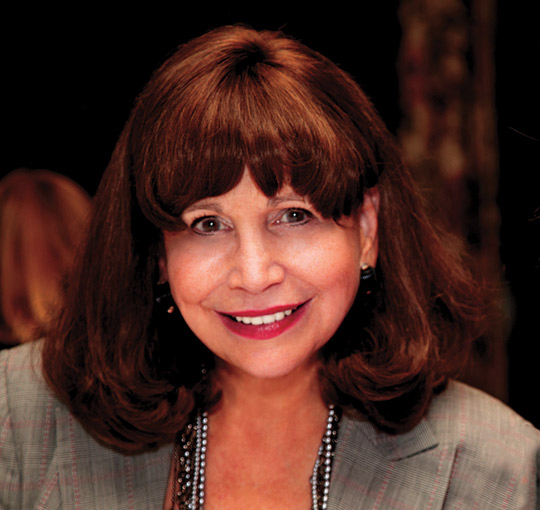TC's Rich Diversity
At TC --the birthplace of special education --diversity is the very foundation of who we are and at the root of our tradition of excellence in all we do.
The beginning of the academic year is a joyful time at TC, full of hope and renewal as we welcome new and returning students and faculty. This year has been no exception. But we also began the year on a bittersweet note as we mourned the loss of .o of the College’s brightest lights: Maxine Greene and George Bond.
In this issue of TC Today, we remember these two TC icons with recollections of their work and thoughts from people whose lives they changed. They worked in very different fields and in very different ways — but their influence and impact were equally immense. George, William F. Russell Professor of Anthropology and Education, and Director of the College’s Center for African Studies, was a genuine “dirt anthropologist” who spent time observing societies in remote parts of the world. Maxine, the William F. Russell Professor Emerita, was a philosopher who wrote and taught about the meaning of our responses to art and life. Yet, ultimately, they shared a focus on education and the ways it unites individuals from all backgrounds and all walks of life into a living, breathing community. For George, that community had to do with the history of civilization and ideas, and the importance of including Africa and its people in that story. Maxine’s “community” connected individuals embarking on internal journeys to explore thoughts and feelings about art and ideas, our experiences, and our relationships with one another and the world.
We celebrated their extraordinary lives at two moving and joyful memorial events in October. You need only have looked around the audiences to truly appreciate the numerous and diverse lives touched by these .o eminent scholars. Their legacies will live on in the many generations of individuals they taught, mentored and worked alongside. Maxine and George will be greatly missed by all.
Inspired by these extraordinary lives, the people of TC continue to engage in research and practice that make a positive difference in classrooms and communities around the world. In this issue we turn our focus to inclusion in education as both an area of ongoing TC leadership and an urgent issue, given the rapidly changing demographics in our classrooms. American schools serve a student population that is becoming more diverse in every way, including race and ethnicity, but also in regard to students’ abilities, language orientation, special needs and more. At TC, our faculty members are asking: How can we best and most productively serve all these students? What approach is both academically effective and socially just?
A growing movement in education holds that the answer is not segmentation, but instead lies in the effort to build a more inclusive classroom that can serve all children together. The challenges, of course, are enormous, beginning with the physical and logistic organization of classrooms and extending to the preparation and professional development of teachers and the education of parents and communities. But if, as TC Professor Celia Oyler urges, we can “see all the different variables of diversity as richness” and if we believe that all children have the capacity to learn, then inclusive education promises to pay truly enormous dividends.
At TC — the birthplace of special education — diversity is the very foundation of who we are and at the root of our tradition of excellence in all we do. Therefore, it is both thrilling and utterly fitting that, as inclusive education gains traction nationally, our faculty, students and alumni are leading the way to create the research, policy and practice that make this approach work for the benefit of all students. George and Maxine would approve.
--Susan Fuhrman (Ph.D. '77)
Published Friday, Dec. 19, 2014
